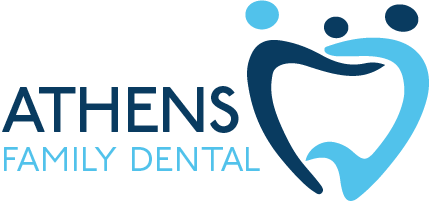
23 Apr Dental Health and Sinuses – How Allergies Affect Your Mouth
Few things can ruin the changing of the seasons like sinus problems. Not only can they make you feel bad, but they can also have a serious impact on your teeth. Find out what’s just allergies or dry mouth, and what is a sign of a more serious condition that you’ll need to see a dentist for.
Sinuses are part of the air pathway in your skull and facial bones. They can become irritated by allergens, resulting in allergy symptoms that can affect your oral health. This can include tooth pain, dry mouth, and even bad breath. Practicing good oral hygiene, staying hydrated, and managing your allergies can help reduce your symptoms.
What are sinuses?
The sinuses are made up of hollow spaces in your skull and facial bones. Each set is named after the bones where they’re located. They are the:
- Maxillary sinuses
- Frontal sinuses
- Ethmoid sinuses
- Sphenoid sinuses
Your maxillary sinuses are found on either side of your nose near your cheekbones. Frontal sinuses are above your eyes, close to your forehead. Sphenoid sinuses are found deep in your skull behind your eyes. Ethmoid sinuses are located on either side of the bridge of your nose, close to your eyes (you actually have three pairs of these).
Together, the sinuses are known as the paranasal sinuses that make up part of the passage that air moves through when you breathe. They also produce mucus to keep those passages moist and act as filters for dust and bacteria. When they become infected, it’s called sinusitis.
Dental Health and Sinus Infection Symptoms
An infection of any of your sinuses can lead to health problems. With that said, maxillary sinus infections are the most common since they’re the largest. These infections can lead to many oral health problems, including:
- Tooth pain
- Dry mouth
- Bad breath
Sinus Tooth Pain
Toothaches aren’t uncommon and there are plenty of reasons why they could occur. Usually, they’re a result of infection, cavities, or an injury. With these types of toothaches, you can usually tell which is being affected based on where it hurts with the affected tooth being in pain.
Like regular toothaches, sinus tooth pain tends to be focused on one area of your mouth: the upper molars. One big difference is that a sinus toothache doesn’t usually affect just one tooth. Instead, it will affect several of your teeth. This is one of the key ways to tell that you’re dealing with a sinus infection. You’ll probably feel sick as well, which is another important giveaway.
Sinuses and Dry Mouth
If you’re suffering a sinus infection due to seasonal allergies, then you may experience dry mouth. You can experience dry mouth due to allergies for a couple of different reasons. The first is that your nose is stopped up, forcing you to breathe through your mouth.
The other, possibly more frustrating reason for your dry mouth, may be due to antihistamines. These are medicines designed to treat allergies, but dry mouth is one of their common side effects.
Dry mouth is a big contributor to cavities. Saliva helps clean away debris and prevent tooth decay, making it essential for good oral health. Think of it as how your body naturally keeps your teeth clean between brushing and flossing. It can also contribute to gum disease, which can have a long-ranging impact on your oral health if not treated.
Bad Breath and Allergies
Problems with allergies and your sinuses can greatly increase your chances of having bad breath. Dry mouth can often lead to bad breath, also known as halitosis. In the same way that saliva helps wash away debris, it also moistens the mouth to help keep it clean. A lack of moisture can cause food particles and other debris, along with bacteria, to collect and grow.
How to Treat Allergy-Related Dental Problems
Allergy symptoms are bad enough, but issues related to your dental health can make them even worse. No one enjoys tooth pain, regardless of the cause. Symptoms such as dry mouth can have far-reaching effects on your teeth and gums. It can also cause dry mouth, which is unpleasant for yourself and possibly embarrassing.
Fortunately, there are steps you can take if you’re struggling with seasonal allergies and sinus issues. By following these simple steps, you’ll be able to nip the effects allergies have on your mouth in the bud.
Maintain Good Oral Hygiene
The first thing you should do is maintain good oral hygiene. This includes:
- Brushing for two minutes, twice per day
- Flossing at least once a day after eating
- Going to your regular dental appointments
By practicing good oral hygiene every day, you’ll be keeping your mouth healthy and protected. Regular visits to the dentist ensures that they’ll catch any issues before they’re able to become major problems.
Drink Water
Water is essential for maintaining good overall health, but it also helps protect your oral health. Water helps with allergies and other sinus problems by keeping your body hydrated and fighting dry mouth. It also aids in flushing away excess mucus in your system.
Gargle with Salt Water
Gargling with salt water is an old home remedy that’s still useful today. All you have to do is dissolve a teaspoon of salt in a glass of warm water. Just gargle and rinse repeatedly until the glass is empty. Salt causes dehydration, which can draw mucus from your sinuses and clear them out. It also helps remove plaque and other bacteria in your mouth that cause bad breath.
Manage Your Allergy Symptoms
Keeping your allergy and sinus symptoms under control is key to protecting your dental health. Avoid going outside on days with high pollen counts. Learn your allergy triggers, such as pollen and pet dander, so you know what to avoid to prevent your allergies from flaring up.
The sinuses located in your skull and facial bones can become irritated due to allergies. This can result in symptoms that can actually affect your oral health, such as tooth pain, dry mouth, and bad breath. Fortunately, there are steps you can take to fight your symptoms. To do this, practice good oral hygiene, stay hydrated, gargle salt water, and manage your allergies.
Would you like to learn more about how oral hygiene can protect you during allergy season? Contact us today to schedule your appointment!
Athens Family Dental is open Monday through Thursday to help with all your dental needs. Call us today at (423) 745-3559, or you can schedule an appointment online.

Sorry, the comment form is closed at this time.